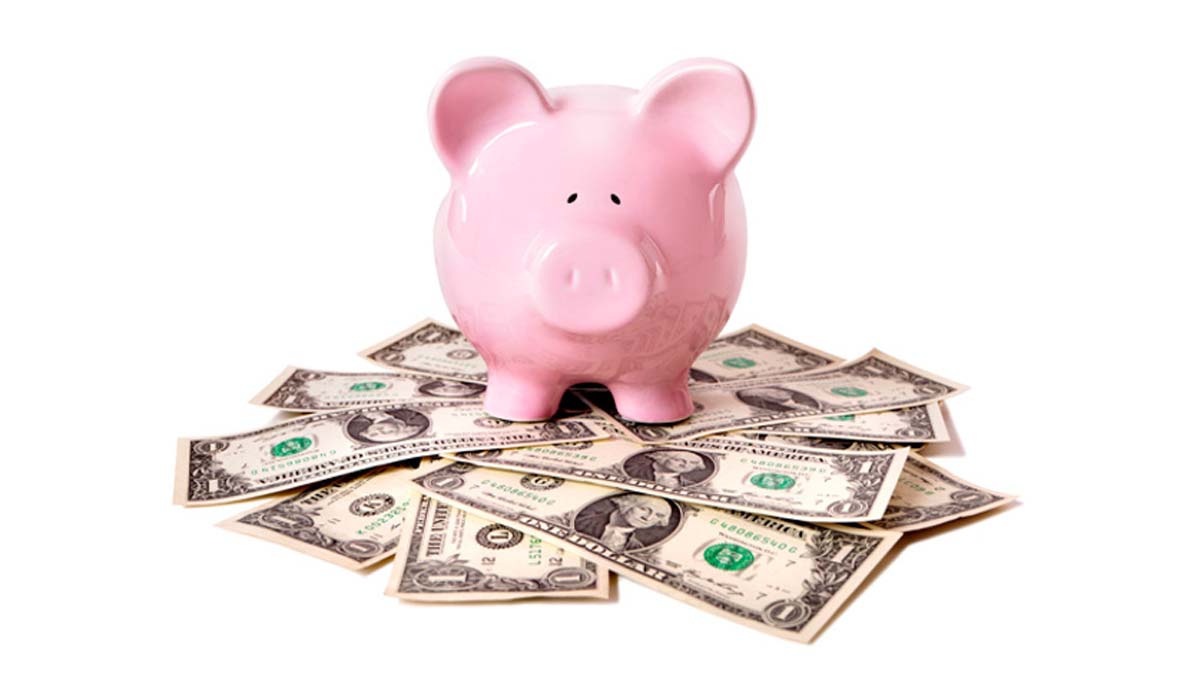Finanzas
El costo de las vacaciones
Publicado
3 años antesel
Por
Staff
“Los proyectos del diligente ciertamente son ventaja, pero todo el que se apresura, ciertamente llega a la pobreza”
Proverbios 21:5
Por: Cambio de Cultura
Llega la época de las vacaciones y para muchas personas, es uno de los tiempos en los que más cuesta lograr que el presupuesto no se salga de control. La clave para lograrlo es aprender y decidir no gastar por impulso. Gastar por impulso es una receta para el desastre económico.
Una buena estrategia para no caer en esta trampa es pensar en términos anuales (no mensuales, ni semanales). Cuando analizamos nuestros gastos de forma anual, tenemos una mejor perspectiva del costo total de ciertos gastos recurrentes, y de los ahorros mensuales que tenemos que hacer cuando necesitemos o queramos hacer algo que sólo ocurre una vez al año (o dos veces en algunos casos) como son las vacaciones.
Las vacaciones son un gasto que debemos planear con anticipación y presupuestar. Si no definimos cuánto podemos gastar en las vacaciones, la experiencia se convertirá en un barril sin fondo, dado que habrá muchas tentaciones para gastar por impulso.
Otro punto importante de planear con anticipación, así podremos saber cuánto dinero separar cada mes para este fin, o incluso que gastos deberíamos evitar para poder tener más recursos que se pueden aplicar a las vacaciones.
Ideas para economizar tus vacaciones
En lo posible, planea tus vacaciones fuera de temporada. Todo te saldrá más barato. Averigua cuáles son las fechas que se consideran “bajas” en el destino que quieres visitar.
Si vas a viajar en avión, procura comprar tus boletos con anticipación. Puedes encontrar ofertas que superan el viajar en automóvil toda la familia. Es por eso por lo que es importante la planeación y el presupuesto.
Considera la posibilidad de acampar durante las vacaciones para evitar gastos de hotel y restaurantes. Pregunta a tus amigos aventureros de las mejores opciones.
Una idea para ahorrar en equipo para acampar es ponerse de acuerdo con otras familias en comprar equipo entre todos que pueden turnarse en diferentes fechas. Otra idea que te puede sonar extraña, pero podría ser una buena opción para dos familias, es tratar de intercambiar casa con una familia amiga que viva en el lugar que quieres visitar.
También una opción es la renta de casas particulares que se ofrecen como alquiler vacacional mucho más económicas que un hotel (ejemplo: Airbnb es una compañía que ofrece una plataforma digital dedicada a la oferta de alojamientos a particulares y turísticos).
Elige lugares cercanos a donde vives. Los ahorros pueden ser considerables, hay mucha gente que viaja muchos kilómetros a lugares que están cerca de tu residencia.
Prevenir y no lamentar
- Comienza a ahorrar. Separa un poco de dinero cada mes o incluso cada semana. Recuerda que debe ser un proyecto anual.
- Cuando llegue el momento de salir de vacaciones, puedes repartir cierta cantidad de dinero entre los miembros de la familia para su diversión personal o regalos y recuerdos que ellos quieren adquirir.
- Entre todos deben hacer un compromiso de que una vez que los fondos personales se han acabado no habrá más dinero adicional para gastar.
- Planea días para divertirse sin salir de paseo durante las vacaciones. Pueden usar juegos de mesa para pasar un tiempo de recreación en familia que saldrá mucho más económico y tendrán tiempo de compañerismo en familia.
“Cuida los centavos, que los pesos se cuidan solos”
Lo más importante
Recuerda que lo más importante al momento de salir de vacaciones con la familia no son los lugares que visitan, las actividades que realizan o los juegos que se juegan. Lo más importante es poder disfrutar de la compañía de tus seres queridos y restaurarnos física, emocional y espiritualmente.
Comienza a disfrutar tus vacaciones desde el momento en que comienzan. Muchas veces perdemos la capacidad de disfrutar, por estar desesperados por llegar al destino escogido.
“He visto que no hay nada mejor para el hombre que gozarse en sus obras, porque ésa es su suerte. Porque ¿quién le hará ver lo que ha de suceder después de él?”
Eclesiastés 3:22
The cost of vacations
“The plans of the diligent lead to profit as surely as haste leads to poverty.”
Proverbs 21:5
By: Cambio de Cultura
The vacation season is upon us and for many people, it’s one of the hardest times to keep the budget in check. The key to achieving this is to learn and decide not to spend on impulse. Impulse spending is a recipe for economic disaster.
A good strategy to avoid falling into this trap is to think in annual terms (not monthly or weekly). When we analyze our expenses on an annual basis, we have a better perspective of the total cost of certain recurring expenses, and the monthly savings we have to make when we need or want to do something that only happens once a year (or twice in some cases) such as a vacation.
Vacations are an expense that we should plan ahead and budget for. If we do not define how much we can spend on vacation, the experience will become a bottomless barrel, since there will be many temptations to spend on impulse.
Another important point is to plan ahead, so we can know how much money to set aside each month for this purpose, or even what expenses we should avoid in order to have more resources that can be applied to the vacation.
Ideas to economize your vacations
If possible, plan your vacations out of season. Everything will be cheaper. Find out which dates are considered “low” in the destination you want to visit.
If you are going to travel by plane, try to buy your tickets in advance. You can find deals that beat traveling by car for the whole family. That’s why planning and budgeting are important.
Consider camping while on vacation to avoid hotel and restaurant expenses. Ask your adventurous friends about the best options.
One idea to save on camping gear is to agree with other families to buy gear together so you can take turns on different dates. Another idea that may sound strange to you, but could be a good option for two families, is to try to exchange houses with a family friend who lives in the place you want to visit.
Another option is to rent private homes that are offered as vacation rentals much cheaper than a hotel (example: Airbnb is a company that offers a digital platform dedicated to the supply of accommodation to individuals and tourists).
Choose places close to where you live. The savings can be considerable, there are many people who travel many kilometers to places that are close to your residence.
Prevent and don’t regret
Start saving. Set aside a little money every month or even every week. Remember that it should be an annual project.
When it’s time to go on vacation, you can divide a certain amount of money among family members for their personal enjoyment or gifts and souvenirs they want to purchase.
Everyone should make a commitment that once the personal funds are gone there will be no additional money to spend.
Plan days to have fun without going out for the vacations. You can use board games for family recreation time that will be much less expensive and you will have family fellowship time.
“Take care of the pennies, the pesos take care of themselves.”
The most important thing
Remember that the most important thing when going on vacation with the family is not the places you visit, the activities you do or the games you play. The most important thing is to be able to enjoy the company of your loved ones and restore ourselves physically, emotionally and spiritually.
Start enjoying your vacation from the moment it begins. Many times we lose the ability to enjoy ourselves because we are desperate to get to our chosen destination.
“So I saw that there is nothing better than that a man should rejoice in his work, for that is his lot. Who can bring him to see what will be after him?”
Ecclesiastes 3:22

“El rico se enseñorea de los pobres, y el que toma prestado es siervo del que presta”
Proverbios 22:7
Por: Cultura Financiera
¿Quién no quiere despertarse todas las mañanas sin sentirse agobiado por el peso de las deudas? Lo primero que debemos entender es que la liberación económica no se produce de la noche a la mañana, ni se logra sin sacrificios. Somos nosotros los que debemos de cambiar nuestro rumbo, el fruto será la satisfacción de no ser esclavo de nadie.
La Biblia no prohíbe contraer deudas, pero no aconseja hacerlo. Cuando estamos endeudados, estamos en una posición de esclavitud delante de quien nos prestó. Cuanto más nos sumergimos en las deudas, más esclavos somos de los prestamistas. No tenemos la libertad de decidir en qué gastar nuestro ingreso, porque nuestro dinero ya está legalmente comprometido con las deudas.
¿Por qué caemos en deudas?
Por lo regular, uno va cayendo poco a poco, a veces sin quererlo. Con frecuencia ocurrirán eventos que nos llevan a pensar que tomar prestado es la última salida. Nadie está exento de situaciones que desestabilizan nuestra economía.
Algunas razones por las que caemos en deudas son:
• No ahorramos con regularidad
• Falta de contentamiento o dominio propio
• Vivimos en un nivel socioeconómico al que no pertenecemos
• Falta de planeación para que los gastos no excedan los ingresos
• Falta de conocimiento de principios con respecto al dinero
• Emergencias
Pasos para salir de deudas
1. Establece un plan de manejo del dinero (Plan de gastos-presupuesto): El saber cuánto entra y sale de dinero en tu familia te ayudará a ver áreas donde puedes disminuir los gastos, o cuánto deben aumentar tus ingresos.
2. Establece un sistema de control, especialmente de gastos, que nos ayuda a tapar los hoyos dónde se nos está escurriendo el dinero. (por ejemplo, sistema de sobres: poner en un sobre la cantidad de dinero que utilizaremos para cada cosa que tenemos que gastar).
3. Disminuye gastos y/o aumenta ingresos: Se creativo y sabio. No necesariamente tienen que salir a trabajar los dos o doblar turnos, especialmente si tienen niños pequeños. Considera un trabajo desde el hogar, o un segundo empleo temporal.
4. Haz una lista de tus deudas con los datos del acreedor: Debes poner en orden: a quién le debes, cuánto pagas de intereses, quién es el contacto de tu deuda y el orden que debes pagar las deudas.
5. Establece un plan de pagos realista para demostrar a nuestros acreedores que somos gente sería y honesta que quiere pagar su deuda. En algunos casos podrías solicitar unos meses de gracia, para capitalizarte y poder empezar un plan de pagos para esa deuda.
6. Elimina las deudas más pequeñas y las que tienen intereses más altos, esto aporta un estímulo y una sensación de avance. Eliminar las deudas con intereses más altos nos ayuda a incrementar nuestro flujo de efectivo.
7. Destina el pago que hacías de una deuda que ya pagaste a la siguiente que este en tu lista: Cuando terminamos de pagar una deuda, no destinemos ese pago mensual que hacíamos a esa deuda, para gastos personales si todavía tenemos más deudas que saldar.
Home Debt Management
“The rich ruleth over the poor, and the borrower is servant to the lender.”
Proverbs 22:7
By: Cultura Financiera
Who doesn’t want to wake up every morning without feeling overwhelmed by the weight of debt? The first thing we must understand is that economic liberation does not happen overnight, nor is it achieved without sacrifices. It is up to us to change our course, and the result will be the satisfaction of not being a slave to anyone.
The Bible does not prohibit going into debt, but it does not advise doing so. When we are in debt, we are in a position of slavery to the lender. The deeper we sink into debt, the more enslaved we are to the lenders. We do not have the freedom to decide how to spend our income, because our money is already legally tied up in debt.
Why do we fall into debt?
Usually, we fall into debt little by little, sometimes unintentionally. Events often occur that lead us to think that borrowing is the last option. No one is exempt from situations that destabilize our economy.
Some reasons why we fall into debt are:
• We do not save regularly
• Lack of contentment or self-control
• We live in a socioeconomic level to which we do not belong
• Lack of planning so that expenses do not exceed income
• Lack of knowledge of principles regarding money
• Emergencies
Steps to get out of debt
1. Establish a money management plan (spending plan-budget): Knowing how much money comes in and out of your family will help you see areas where you can reduce expenses, or how much you should increase your income.
2. Establish a control system, especially for expenses, that helps us cover the holes where money is slipping away. (for example, envelope system: put in an envelope the amount of money that we will use for each thing we have to spend).
3. Reduce expenses and/or increase income: Be creative and wise. You don’t necessarily have to go out to work together or work double shifts, especially if you have small children. Consider a home-based job, or a second temporary job.
4. Make a list of your debts with the creditor’s information: You must put in order: who you owe, how much interest you pay, who is the contact for your debt and the order in which you must pay the debts.
5. Establish a realistic payment plan to show your creditors that you are serious and honest people who want to pay your debt. In some cases, you could request a few months of grace to build up your capital and be able to start a payment plan for that debt.
6. Eliminate smaller debts and those with higher interest rates. This provides a boost and a sense of progress. Eliminating debts with higher interest rates helps us increase our cash flow.
7. Allocate the payment you made on a debt you already paid to the next one on your list: When we finish paying off a debt, let’s not allocate that monthly payment that we made on that debt to personal expenses if we still have more debts to pay off.

Identifique las fuentes de ansiedad, siga un presupuesto, forme un fondo de emergencias, evite compras innecesarias, y pida ayuda
Se sufre de estrés financiero cuando hay preocupación o inquietud por la situación económica, que pudiera estar ocasionado por inestabilidad en el trabajo o los negocios o simplemente por la inhabilidad de administrar el dinero. Es posible trabajar en ello, pero es un proceso paulatino. Aquí algunos sencillos consejos:
Identifique que le produce mas ansiedad: Pagar la renta, cubrir la hipoteca, salir a fin de mes con los gastos de la casa o de las escuelas de los hijos.
Genere y siga un presupuesto: Documentar los gastos a cubrir en un periodo determinado para identificar las potenciales fugas y gastos innecesarios. Ubique en primer lugar de su presupuesto el aspecto que más ansiedad o preocupación le causó del punto anterior, dado que demanda mayor atención.
Mantenga un registro de ingresos y egresos. Puede llevarse a cabo en un simple cuaderno o en una hoja de cálculo electrónica. Lo importante es registrar todos y cada uno de los gastos, para luego controlarlos. Sí, incluso el café que compra en la tienda de conveniencia por las mañanas. El objetivo es identificar que se gasta más de lo que se percibe para remediar a la brevedad esa situación controlando los gastos no necesarios.
Considere un fondo de emergencias. Con la finalidad de estar listo para cualquier eventualidad, este fondo debe empezar a formarse tan pronto se tenga un ingreso.
Evite las compras innecesarias. No siempre es necesario hacer todas las compras deseadas. El autocontrol es básico para minimizar el riesgo a endeudarse.
Reduzca al máximo posible las deudas, todas sus deudas. Saldar los compromisos con los acreedores permitirá ahorrar. La regla básica es que del 100% de los ingresos, debiera considerarse el 50% para necesidades básicas, 20% para ahorro y 30% para gastos personales.
No se endeude, por muy tentadora que sea la oferta, no comprometa sus ingresos. Mantenga especial atención en el uso de las tarjetas de crédito ya que NO significan dinero adicional.
Antes de empezar a distribuir sus ingresos una vez que recibe su paga, separe como norma el monto de lo que desea ahorrar.
Establezca metas y una vez alcanzadas, otórguese un reconocimiento. Tan sencillo como una vez ahorrada cierta cantidad, regálese un libro o un café.
Si todo lo anterior sigue siendo difícil, no dude en pedir ayuda, todos podemos siempre brindarnos una mano.
Bye, bye, financial stress
Identify sources of anxiety, follow a budget, build an emergency fund, avoid unnecessary purchases, and ask for help.
Financial stress occurs when there is worry or concern about the economic situation, which could be caused by instability at work or business or simply by the inability to manage money. It is possible to work on it, but it is gradual. Here are some simple tips:
Identify what makes you most anxious: paying the rent, covering the mortgage, making ends meet with household expenses, or paying children’s school fees.
Create and follow a budget. Document the expenses to be covered to identify potential leaks and unnecessary costs. Place at the top of your budget the item that caused you the most anxiety or concern from the previous point since it demands the most attention.
Keep a record of income and expenses. This can be done in a simple notebook or an electronic spreadsheet. The important thing is to record each expense and then control it—yes, even the coffee you buy at the convenience store in the morning. The objective is to identify that you are spending more than you receive and remedy that situation as soon as possible by controlling unnecessary expenses.
Consider an emergency fund. As soon as you have an income, you should begin to build this fund to be ready for any eventuality.
Avoid unnecessary purchases. It is only sometimes necessary to make all the desired purchases. Self-control is essential to minimize the risk of getting into debt.
Reduce all your debts as much as possible. Paying off commitments with creditors will allow you to save. The basic rule is that 100% of income should be considered for basic needs, 20% for savings, and 30% for personal expenses.
Do not get into debt, no matter how tempting the offer. Do not compromise your income. Pay special attention to the use of credit cards, as they do not mean additional money.
Once you receive your paycheck, set aside the amount you want to save as a rule before you start distributing your income.
Set goals, and once you have achieved them, give yourself recognition. It could be as simple as treating yourself to a book or a cup of coffee once you have saved a certain amount.
If the above is still tricky, feel free to ask for help; everyone can always lend a hand.

Aprende a identificar y controlar los gastos menores e innecesarios para fortalecer tus finanzas y priorizar tus necesidades
- Céntrate en los Cuatro Muros:
- Comida
- Servicios
- Techo
- Transporte
Por: Guillermo Camillo
“Con sabiduría se edifica una casa, Y con prudencia se afianza; Con conocimiento se llenan las cámaras De todo bien preciado y deseable”.
Proverbios 24:3-4
Las personas no nos metemos en problemas financieros porque seamos tontos, nos metemos en problemas porque no tenemos información adecuada de nuestras finanzas. Se necesita sabiduría, prudencia y conocimiento según el pasaje inicial para “llenar las cámaras de todo bien preciado y agradable”. Una de las áreas en la que frecuentemente no aplicamos sabiduría, prudencia y conocimiento es en los famosos gastos hormiga.
Los gastos hormiga son esas pequeñas compras o desembolsos que hacemos de manera reiterada y casi inconsciente, sin considerar su efecto en nuestro presupuesto. Aunque parecen insignificantes, al acumularse, pueden afectar seriamente nuestra economía personal. Es importante identificar estos gastos para tomar mejores decisiones financieras y priorizar nuestras verdaderas necesidades y deseos.
Algunos ejemplos comunes de gastos hormiga son: comprar diariamente un café, chicles, bebidas, almorzar fuera, dar propinas, gastar en snacks como galletas, chocolates o papitas. Aquí tienes algunas estrategias para controlarlos:
- Reconoce tus gastos hormiga: Identifica esos gastos pequeños y recurrentes que sueles pasar por alto, como el café diario o las compras impulsivas en el supermercado.
- Lleva un registro de tus gastos no programados: guarda tus recibos de compra, Anota tus gastos en una app o una libreta. Suma los valores para tener una visión clara de cuánto estás gastando en estos pequeños desembolsos.
- Crea un presupuesto mensual para pequeños gastos: asigna una cantidad específica para gastos hormiga. Esto te ayudará a controlarlos y evitar sorpresas al final del mes.
- Pregúntate: “¿Lo deseo o en verdad lo necesito?”. Antes de comprar algo, reflexiona si realmente lo necesitas. A veces, decir “no” a esos antojos momentáneos puede ahorrarte dinero a largo plazo.
- Compra sin hambre y con una lista. Ir al supermercado con hambre puede llevarnos a comprar más de lo necesario. Haz una lista antes de salir y apégate a ella.
- Evita ofertas innecesarias: En el supermercado, resiste la tentación de comprar artículos que no necesitas solo porque están en oferta.
Si estás en una situación delicada con tus finanzas, debes concentrarte en las cosas que realmente necesitas para sobrevivir. A estos los llamamos los Cuatro Muros.
Los Cuatro Muros son tu prioridad, así que paga estas cosas en este orden, antes que nada: 1: Comida, 2: Servicios, 3: Techo, y 4: Transporte.
Estos son los conceptos básicos que necesitas para poner en orden tus finanzas y controlar los gastos que desestabilizan tu economía. La comida es el número uno en la lista, por razones obvias. Si queda dinero después de ocuparte de los Cuatro Muros, haz una lista de lo que necesitas pagar y cubre eso en orden de importancia.
“Los proyectos del diligente ciertamente son ventaja, Pero todo el que se apresura, ciertamente llega a la pobreza”.
Proverbios 21:5
Control your nickel-and-dime expenses to prosper
Learn how to identify and control minor and unnecessary expenses to strengthen your finances and prioritize your needs.
Focus on the Four Walls:
- Food
- Utilities
- Roof
- Transportation
By: Guillermo Camillo
“By wisdom, a house is built, And by prudence, it is strengthened; By knowledge, the chambers are filled With every precious and desirable thing.”
Proverbs 24:3-4
People do not get into financial trouble because they are fools; they get into trouble because they do not have adequate information about their finances. According to the opening passage, wisdom, prudence, and knowledge are necessary to “fill the chambers with every precious and pleasant thing.” The famous nickel and dime spending is one area in which we often fail to apply wisdom, prudence, and knowledge.
Ancillary expenses are those small purchases or disbursements that we make repeatedly and almost unconsciously without considering their effect on our budget. Although they seem insignificant, they can seriously affect our economy when they accumulate. It is essential to identify these expenses to make better financial decisions and prioritize our actual needs and desires.
Some common examples of these little expenses are buying daily coffee, gum, and drinks, eating out for lunch, tipping, and spending on snacks such as cookies, chocolates, or chips. Here are some strategies to control them:
- Recognize your nickel-and-dime expenses: Identify those small, recurring expenses you tend to overlook, such as daily coffee or impulse purchases at the supermarket.
- Keep track of your unscheduled expenses: Save your shopping receipts or write down your expenses in an app or a notebook. Add up the values to get a clear picture of how much you are spending on these small outlays.
- Create a monthly budget for small expenses: Allocate a specific amount for small costs. This will help you control them and avoid surprises at the end of the month.
- Ask yourself: “Do I want it or do I need it? Before you buy something, think about whether you need it. Sometimes, saying “no” to those momentary cravings can save you money in the long run.
- Shop without hunger and with a list. Going to the grocery store hungry can lead to buying more than you need. Make a list before you leave and stick to it.
- Avoid unnecessary bargains: At the grocery store, resist the temptation to buy items you don’t need just because they’re on sale.
If you’re in a tight spot with your finances, you should focus on what you need to survive. We call these the Four Walls.
The Four Walls are your priority, so pay for these things in this order: 1: Food, 2: Utilities, 3: Shelter, and 4: tTransportation.
These are the basics to get your finances in order and control the expenses destabilizing your economy. Food is number one on the list for obvious reasons. If money is left over after taking care of the Four Walls, list what you need to pay for and cover that in order of importance.
“The plans of the diligent certainly are advantageous, But everyone who hastens certainly comes to poverty.”
Proverbs 21:5
















